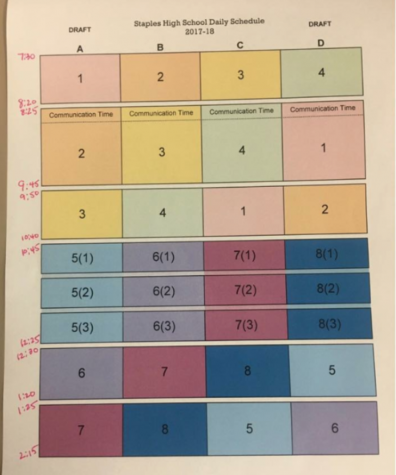EDITORIAL: Continuation of remote learning requires clear communication from administration, teachers
Graphic by Poppy Livingstone ’21
As the remote learning program progresses, many have expressed confusion due to a lack of clarification or communication from administration and teachers. We hope we can prioritize clarity in the coming weeks.
As school’s resumption is further postponed until May 20, it is critical that we continue examining and improving the remote learning program for the foreseeable weeks. In the past month, a pressing need for clear communication and transparency has surfaced; students, teachers and administration would all benefit from assessing and amending our communication to promote efficiency and productivity.
Many students felt confused after the Board of Education notified families about a pass-fail grading system for fourth quarter. The email lacked concrete information regarding the student selection process for this system and deadlines for students’ decisions. The uncertainty surrounding the grading system created additional student stress during these already trying times.
While we appreciate the administration’s desire to relay information, we hope that the future can bring clearer communication outlining concrete plans so as not to instigate rumor or confusion.
We have also noticed a lack of cohesion in the work-time required for various classes. While some teachers adhere to 30 minute assignments, others have assigned more than an hour of classwork and homework per day. Because of this, we hope for improved communication and clarity from teachers in the coming weeks. Through frequent department and staff-wide conversations, teachers can coordinate lesson plans and share successful strategies to promote uniformity among lessons and workloads.
We also see potential for increased clarity in student-teacher interaction. Google Hangouts and Schoology conferences meetings are invaluable during this time; many students prefer this face-to-face interaction, as it serves as a reminder of normality, enabling productivity and lesson comprehension. Additionally, notifying students of upcoming meetings ahead of time —preferably a few days prior to their scheduled dates—would improve student attendance.
It is essential that all teachers take advantage of the abundant online resources to encourage optimal interaction. However, we acknowledge that these difficult circumstances prevent true communication, as teachers must balance teaching responsibilities with other pressing obligations.
Because of this, students must also recognize the value of communication; by reaching out with questions or articulating the challenges they might be facing, we can preserve a strong sense of school community, even while separated.
The editorial board voted unanimously in favor of this editorial.
















































![[Nov. 2016 Editorial] Battling bystander effect requires administrative change](https://www.inklingsnews.com/wp-content/uploads/2016/11/Screen-Shot-2016-11-22-at-1.05.28-PM.png)




